A finely tuned air start Viper with an electronically actuated throttle control.
The Viper C201 Turbo Jet Engine was originally from a Jindivik drone aircraft. The Jindivik was used by the RAF to tow targets for ‘fast Jet’ target practice. Later Jindivik drones used Jet Provost Viper 202 engines that were modified to Viper C201 engines.
Power output is about 3000lbs, making the C201 the most powerful Viper in in its range.
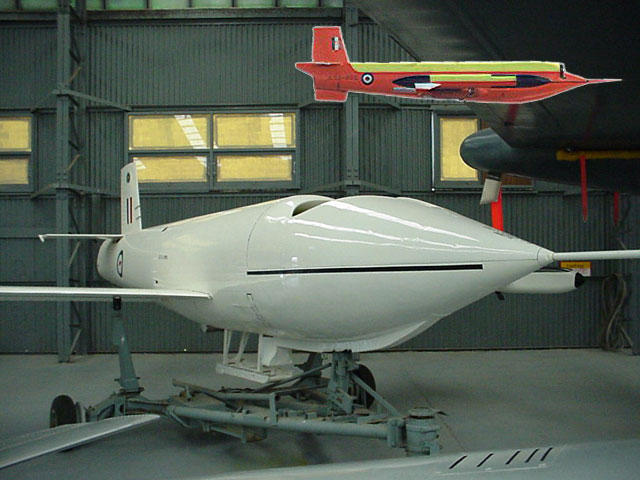
Rolls Royce (Bristol) Viper C201 in test stand with the FOD guard securely in place. The alternator and intake bullet are missing from the engine as these are considered part of the aircraft.
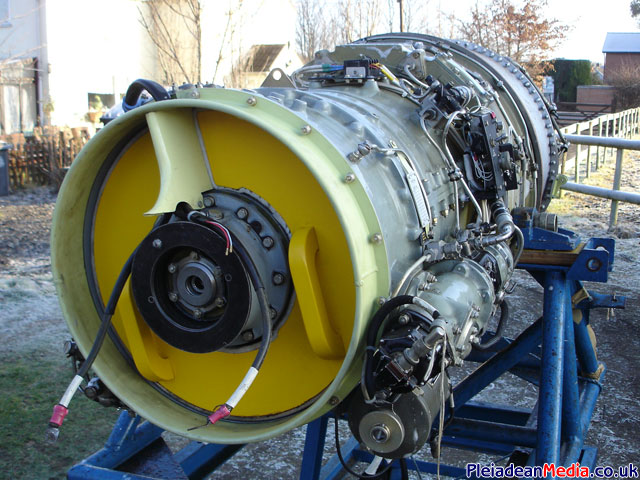
Gearbox (Port) side of the Viper.
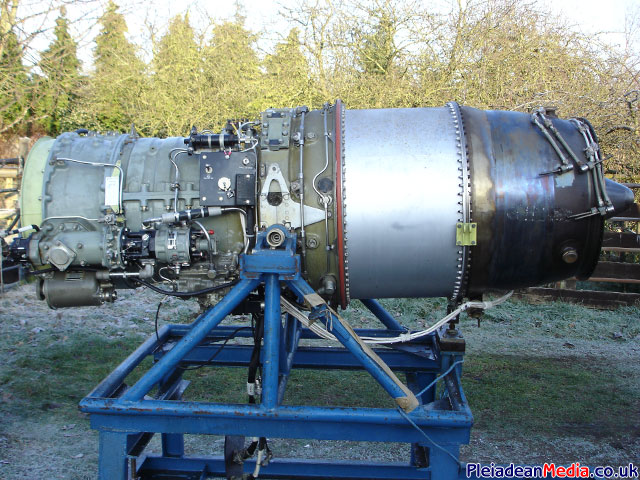
Oil tank (Starboard) side of the viper.
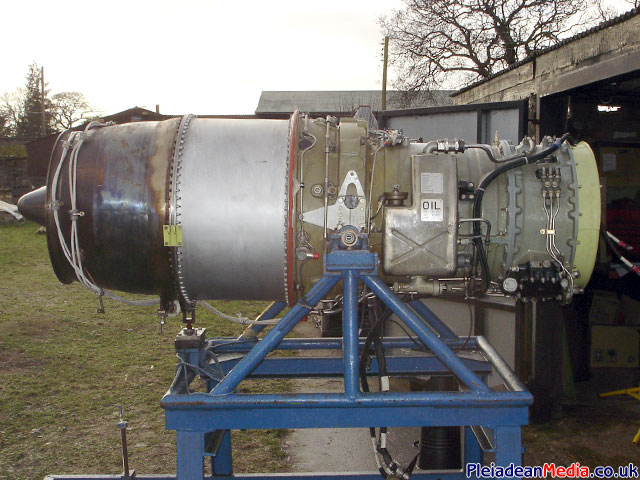
Viper with Jet Pipe attached.
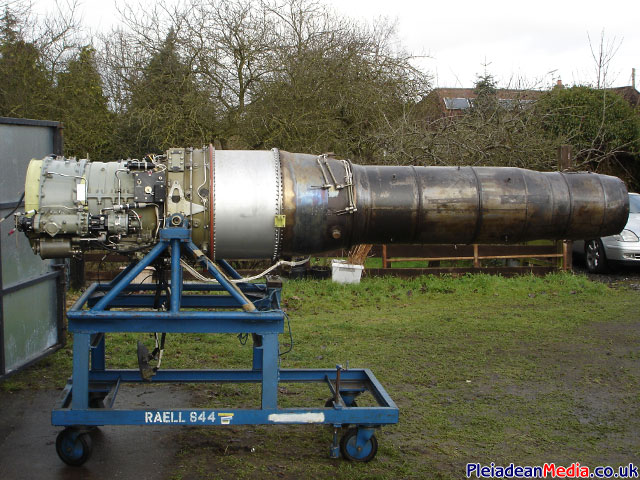
Viper with Jet Pipe attached.
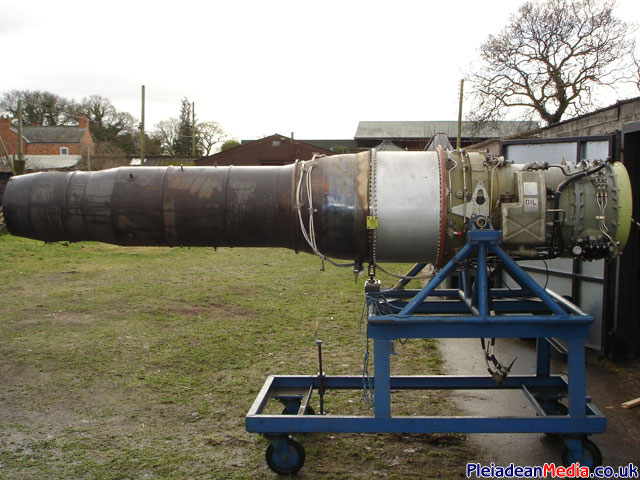
Overview.
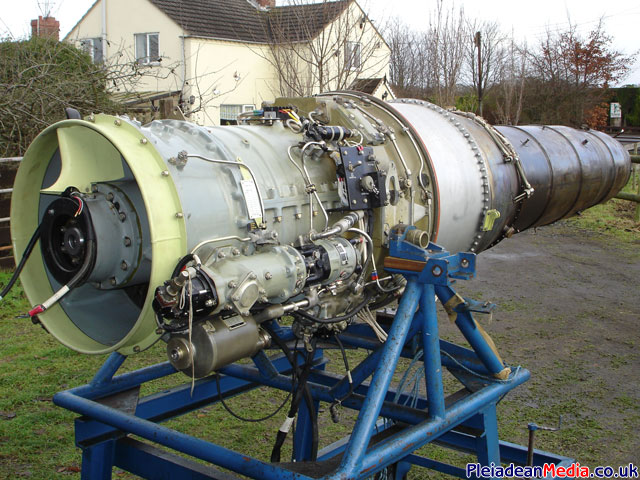
Close up of gearbox assy.
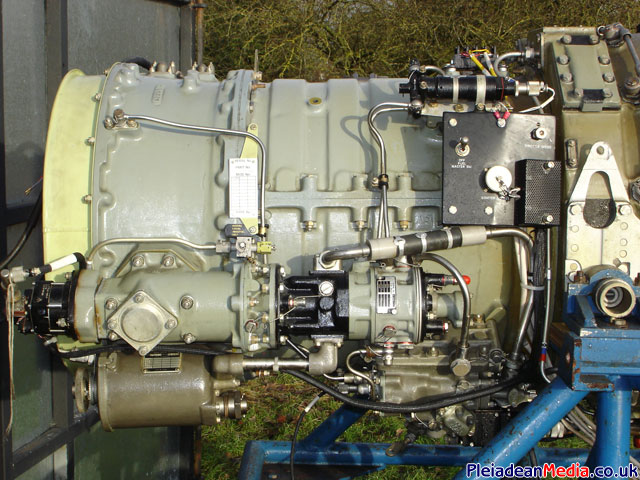
Close up of Compressor Section.
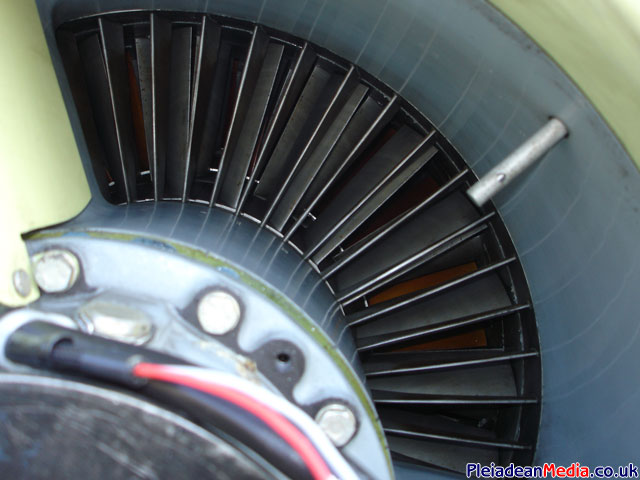
Turbine & exhaust nozzle.
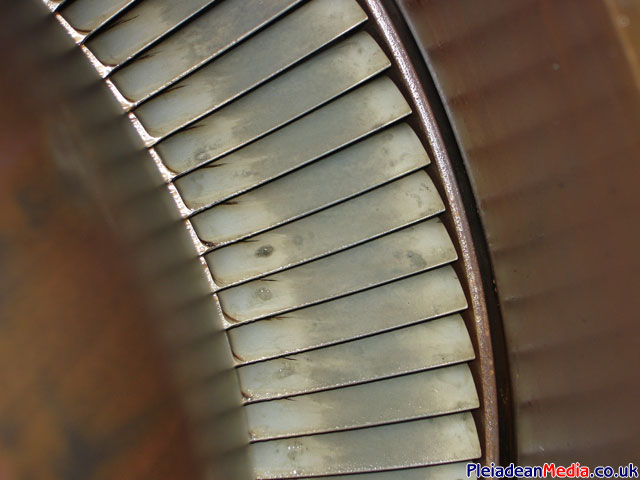
Compressor Section.
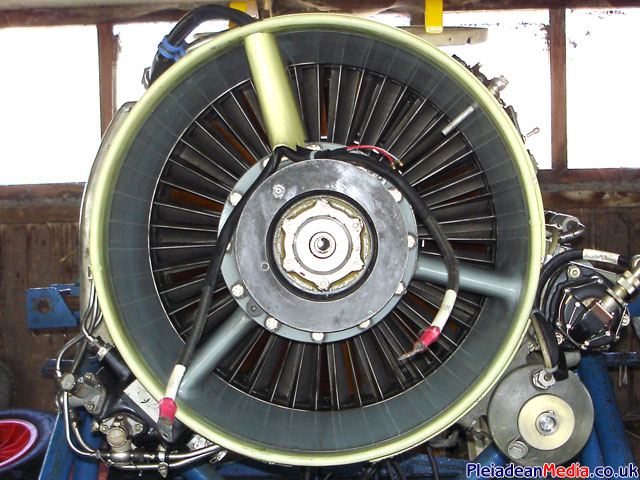
Turbine & exhaust nozzle.
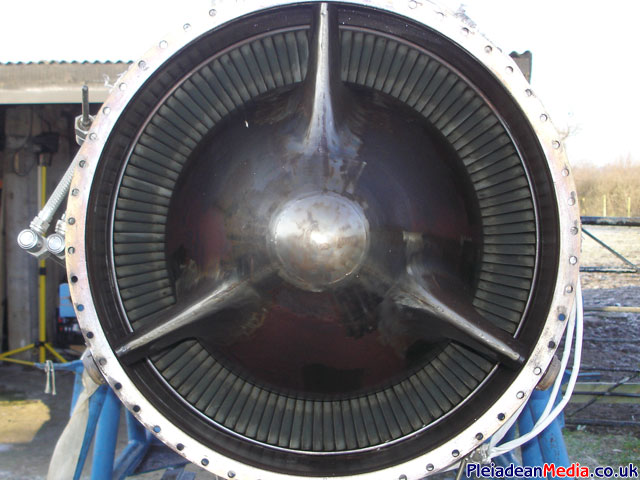
Air start fitting which directs the air on to the turbine wheel at an enormous rate! This may be an issue, as the size of the compressor required may make starting the viper this way prohibitive.
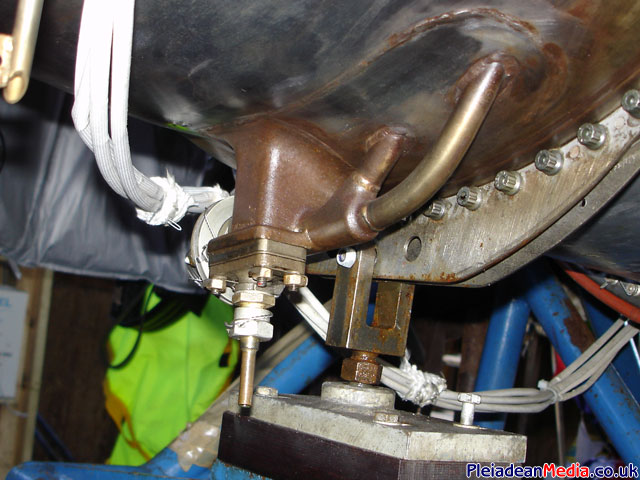
Exhaust Assy.
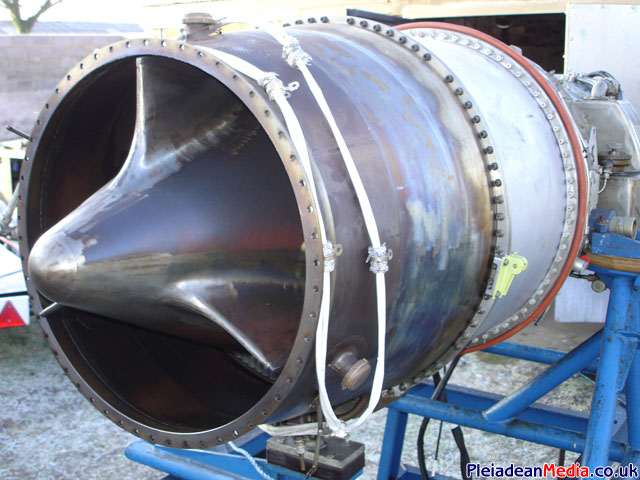
Find of the century, a geniune alloy nose bullet and in great shape too. There are vents on it to aid the cooling of the altenator that would have been housed inside it.
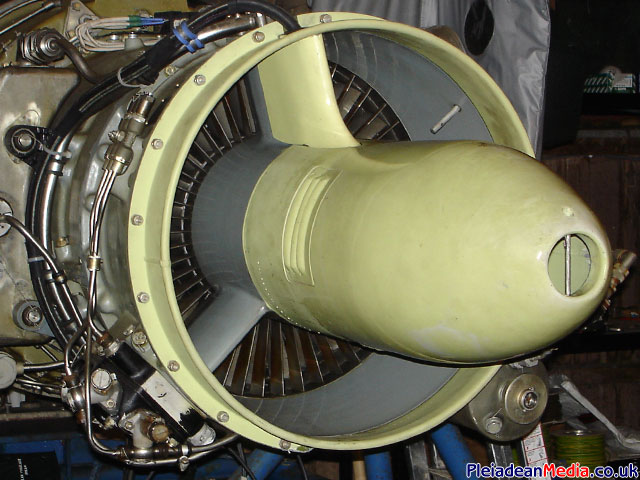
Fog guard fitted in to place.

